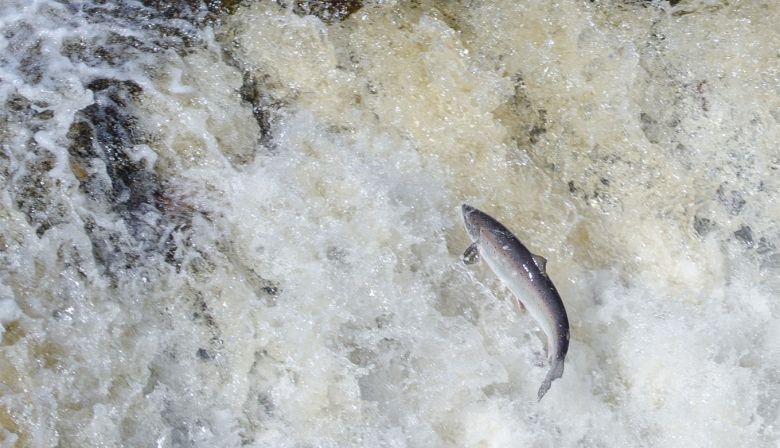Ahead of the beginning of the salmon fishing season Monday, the president of the province’s Salmonid Council says the Department of Fisheries and Oceans’ salmon strategy doesn’t meet it’s own conservation guidelines.
“Wild Atlantic Salmon have been in serious decline for the last four years in Newfoundland,” Leo White told CBC Radio’s The Broadcast Thursday.
“Each of the past four years, we’ve had approximately a 30 per cent drop in the number of adult salmon returning to rivers to spawn, so that’s a very serious situation. It indicates that you have to take extra precautions.”
According to DFO, nine of the 24 salmon rivers it monitors are at critical stock levels. White says egg deposition dropped 43 per cent between 2018 and 2019.
Going into the new season, White says DFO is keeping the same plan in place as last year. The strategy involves all anglers getting a single salmon tag, with the possibility of getting up to two extra tags, meaning anglers can retain up to three salmon.
He thinks a more cautious approach is needed to protect the population.
“They’ve done exactly the same thing this year. Except they didn’t start with one, they started with three,” White said. “They basically rolled over their plan from 2019 into 2020 without any changes whatsoever.”
“That would be fine if the stocks were in shape to absorb that kind of pressure, but they’re not. Their own science department is telling them that … those monitored rivers are telling us that the stocks are in a steady decline, they just can’t take that kind of pressure.”
Last summer’s plan ‘major improvement,’ says citizens alliance
When other interested groups met with DFO in January, not all groups were against the idea of retaining three salmon. One of the groups in favour of the new plan is the Citizens Outdoor Rights Alliance, led by president Gary Gale.
“The plan last summer was a major improvement over the previous plan,” Gale told The Broadcast Friday. “The [previous] plan was a total disaster, of course we objected to the plan, very strongly objected the first year it was introduced.”
“The plan introduced by DFO last summer was a big success. It was accepted by anglers, and we see it as a fair and balanced plan.”
Gale said his group is not alone in supporting fish retention.
“Ninety per cent of the anglers in the province are retention anglers,” he said.
“It’s our judgment, and course our judgment is based on science as well. We see retention as a very good conservation practice, and we believe the potential is there to take three fish.”
Ahead of the beginning of the season, Gale said his group is calling for changes to DFO’s river assessment process, as well as regulating a catch and release system in the province.
“What really concerns our group is the lack of much better science, more credible science,” he said.
“We have almost 400 rivers in this province, and of course we only have assessment done on a handful of rivers. And it’s our judgment some should be dropped from the assessment process all together, because we don’t think they’re a fair reflection of fish returns.”
https://www.cbc.ca/news/canada/newfoundland-labrador/salmon-season-begins-retention-issues-1.5591930
